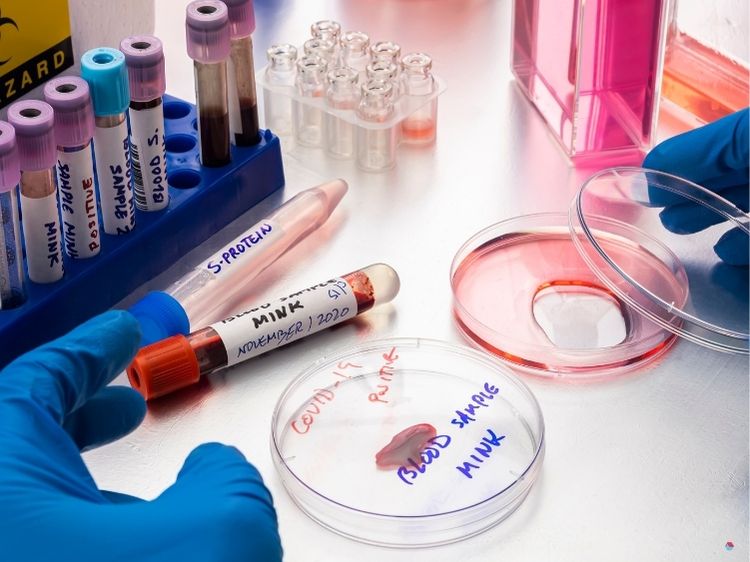Welcome to the frontier of healthcare, where innovative pathology services are transforming the landscape of medical diagnostics. Gone are the days of waiting anxiously for test results or doubting their accuracy. Today’s pathology services combine cutting-edge technology, research, and expert analysis to offer faster, more reliable diagnostics than ever before. Let’s dive into how these advancements are not just changing the game but revolutionizing the way we approach healthcare.
The Evolution of Pathology Services
Pathology, the study of disease, stands as a cornerstone in the medical world, providing insights that guide every aspect of patient care, from diagnosis to treatment. However, the field is not static; it evolves constantly, integrating new technologies and methodologies to improve patient outcomes. This evolution paves the way for innovative pathology services, a domain where science meets technology to enhance diagnostic precision and speed.
What Sets Innovative Pathology Services Apart?
Innovative pathology services leverage the latest in digital imaging, molecular diagnostics, and artificial intelligence (AI) to elevate the standards of care. They’re not just about running tests; they’re about providing comprehensive, accurate, and timely insights that can significantly influence treatment decisions. Here’s what makes them stand out:
- Digital Pathology: High-resolution imaging and AI algorithms for detailed tissue analysis.
- Molecular Diagnostics: DNA and RNA analysis for genetic disorders and cancer.
- Rapid Testing: Quick turnaround times for critical diagnoses.
- Personalized Medicine: Tailored treatment plans based on individual genetic profiles.
The Heart of Innovation: Technologies Transforming Pathology
Innovative pathology services are not just a concept; they’re a reality, thanks to several groundbreaking technologies. Here are a few key players:
- Digital Pathology and AI: This dynamic duo has revolutionized tissue analysis, making it faster, more accurate, and infinitely more detailed. By converting glass slides into digital images, pathologists can now share, analyze, and diagnose from anywhere in the world.
- Molecular Diagnostics: By examining the specific molecules in tumors or genetic material, pathologists can identify mutations and markers that guide targeted therapy decisions.
- Telepathology: Remote diagnosis and consultations are now possible, breaking down geographical barriers and making expert opinions accessible to all.
The Impact on Patient Care
The implications of these advancements extend far beyond the laboratory. They’re transforming patient care in profound ways:
- Faster Diagnosis: Time is often of the essence, and rapid results can make a significant difference in treatment outcomes.
- Precision Medicine: With detailed genetic insights, treatments can be tailored to the individual, increasing effectiveness and reducing side effects.
- Increased Accessibility: Remote diagnostics mean that even patients in remote areas can receive top-notch care.
Navigating Challenges and Ethical Considerations
While the path forward is exciting, it’s not without its hurdles. Ethical considerations, data security, and ensuring equitable access are just a few challenges that need addressing. Moreover, the integration of AI and digital tools raises questions about data privacy and the need for robust regulatory frameworks.
The Role of Pathologists in the Digital Age
As technology advances, the role of pathologists evolves. Far from being replaced by machines, pathologists are becoming more vital than ever, interpreting complex data and making critical decisions that algorithms cannot. Their expertise ensures that behind every test, every image, and every diagnosis, there’s a depth of understanding that only human judgment can provide.
FAQs
Q: How do innovative pathology services differ from traditional methods?
A: They incorporate digital tools, AI, and molecular diagnostics for faster, more precise diagnoses.
Q: Can these services improve cancer treatment?
A: Absolutely. By identifying genetic markers, they can guide personalized treatment plans that are more effective and have fewer side effects.
Q: Are digital pathology services accessible worldwide?
A: While accessibility is improving, there’s still work to be done to ensure these services are available globally, especially in underserved areas.
Summary
Innovative pathology services are not just a step forward; they’re a leap into the future of healthcare. By harnessing the power of technology and the expertise of pathologists, these services are setting new standards for accuracy, speed, and patient care. As we navigate the challenges and ethical considerations, one thing is clear: the path ahead is promising, with the potential to transform lives through advanced diagnostics and tailored treatments. In this era of innovation, we’re not just observing the evolution of pathology; we’re actively participating in it, shaping a healthier future for all.
